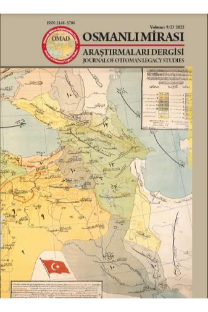MONTENEGRO IN THE GEOPOLITICAL CONTEXT OF THE BALKANS
___
Arapović, Adis, Foreign Policy of Bosnia and Herzegovina: Determinants and Perspectives, Tuzla Center for Civilian Perspectives, BiH, Faculty of Political Sciences, Sarajevo University, BiH, Sarajevo 2010.Bakić, Radovan, Position in space as a factor of development, Geographical Institute of the Faculty of Philosophy, Nikšić 2013.
Bazić, Jovan, Serbian issue - political concepts of solving the Serbian national question, Public Enterprise Official Gazette, Belgrade 2003.
Dugin, Alexander, Fundamentals of Geopolitics - Russia's Geopolitical Future, Ekopres, Zrenjanin, 2004.
Grahovac, Blagoje, Dangerous Things, Vijesti, Podgorica 2010.
Grčić, Mirko, Political Geography, Faculty of Geography, Belgrade 1999.
Mitrović, Ljubiša, Position of the Balkans in Contemporary Geostrategic Examinations, group of authors, Serbia and contemporary processes in Europe and the world, Faculty of Geography, Belgrade 2005.
Nakarada, Radmila, Disintegration of Yugoslavia, problems of interpretation, confrontation and transition, Official Gazette, Belgrade 2008.
Nakarada, Radmila, The Disintegration of Yugoslavia, Problems of Interpretation, Confrontation and Transition, Službeni glasnik, Beograd 2008.
Pavlovic, K. Stevan, History of the Balkans 1804.-1945., Second edition, Klio, Belgrade 2004.
Piroćanac Petrović, Zoran, The Little Glimpse of Geopolitics, Institute for Political Studies, Belgrade 2004.
Šušić, B. Slavoljub, Geopolitical nightmare of the Balkans, VIZ, Belgrade 2004.
Tanasković, Darko, Neo Ottomanism, Doctrine and Foreign Political Practice, Službeni glasnik, Belgrade 2009.
Vukadinović, Radovan, “NATO's action in Yugoslavia and the new world order”, The Political Thought, vol. XXXVI/2, Yale 1999, p. 15–24
http://www.mip.gov.me, February 15, 2011.
- ISSN: 2148-5704
- Yayın Aralığı: 3
- Başlangıç: 2014
- Yayıncı: Abidin Temizer
MEHMET ALİ AYNÎ’NİN EDEBÎ ÇALIŞMALARI
KLASİK ŞERH GELENEĞİNİN SON ÖRNEKLERİNDEN GALEBE-İ SULTÂN-I AŞK
MONTENEGRO IN THE GEOPOLITICAL CONTEXT OF THE BALKANS
Miroslav DODEROVIĆ, Marijan PREMOVIĆ
YENİDEN İŞLEVLENDİRME YOLUYLA KÜLTÜREL MİRASIN KORUNMASI: BELGRAD VUK VE DOSITEJ MÜZESİ ÖRNEĞİ
BESTEKÂR SULTANLARIN OSMANLI MUSİKİSİNE KATKILARI
MEHMET ÂKİF'İN ALMANYA SEYAHATİ
HALEF-SELEF İLİŞKİSİ VE ETKİLENME ENDİŞESİ BOYUTUYLA KLASİK TÜRK ŞAİRLERİNİN DEĞERLENDİRİLMESİ
EN ÇOK OKUNAN ÇEVİRİ ÇOCUK KİTAPLARINDAN BAZILARI ÜZERİNE BİR ARAŞTIRMA
